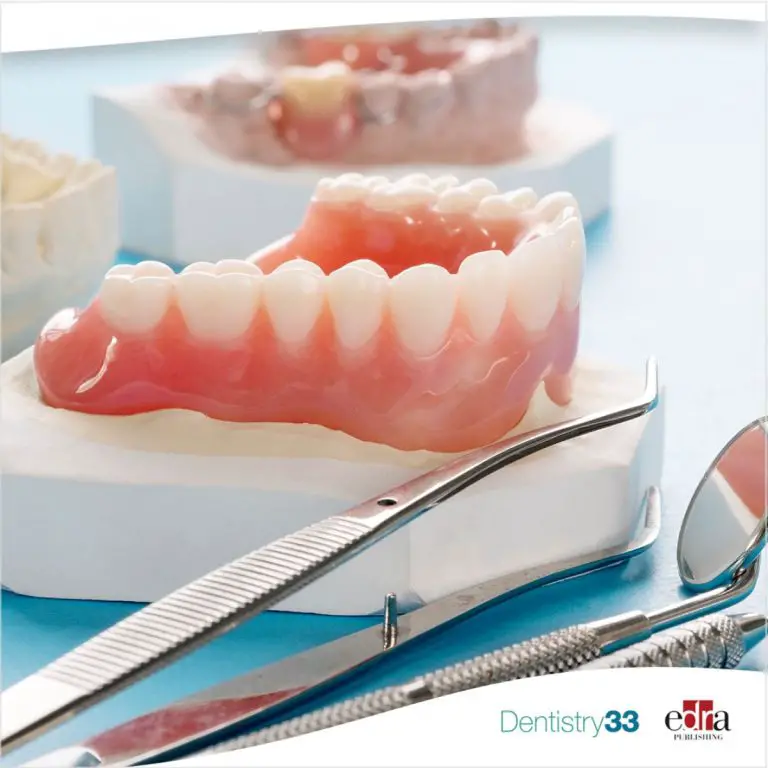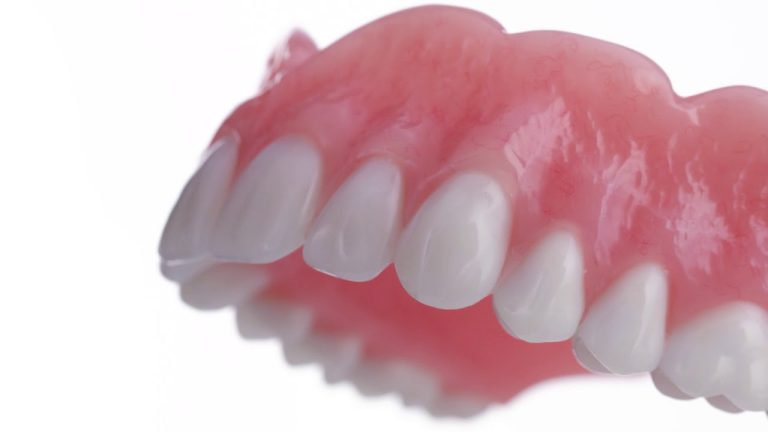Last Updated on 3 weeks by DR. ALBIN SIPES
Dentures can cause discomfort initially but should not be painful once adjusted properly by a dentist. Dentures, also known as false teeth, are prosthetic devices used to replace missing teeth.
While dentures may initially cause discomfort, they should not be painful when fitted correctly by a dental professional. The adjustment period for dentures can vary from person to person, as everyone’s mouth and gums are different. It is common to experience soreness, irritation, or slight pain during the initial adjustment period, but this should subside as your mouth adapts to the dentures.
If you continue to experience pain or discomfort after the adjustment period, it is important to consult your dentist, as it may indicate an ill-fitting or improperly adjusted denture. With proper care and regular dental check-ups, dentures can provide a functional and comfortable replacement for missing teeth.
Understanding The Basics Of Dentures
Are dentures painful? This is a common concern among those considering dentures as a solution for missing teeth. Understanding the basics of dentures can help alleviate any fears or misconceptions surrounding their use. So, let’s dive in and explore what dentures are and how they work.
What Are Dentures And How Do They Work?
Dentures are prosthetic devices designed to replace missing teeth and restore oral functionality. They are custom-made to fit the unique shape and structure of an individual’s mouth. Dentures are removable and can be easily taken out and put back in as needed.
Here are the key points to understand about dentures:
- Dentures are made up of a gum-colored base that holds artificial teeth in place.
- They are typically made from materials like acrylic, metal, or nylon that are durable and comfortable to wear.
- Dentures rely on suction, adhesives, or precision attachments to stay in place within the mouth.
- Initially, dentures may feel slightly uncomfortable or awkward as your mouth adjusts to the new appliance.
- It may take some time to get used to speaking and eating with dentures, but with practice, these activities will become easier.
Now that we have a basic understanding of dentures, let’s explore the different types available and the benefits they offer.
Different Types Of Dentures And Their Benefits:
- Full dentures: These are designed to replace all the teeth in either the upper or lower jaw or both. They provide a complete set of teeth and restore the ability to bite, chew, and speak properly.
- Partial dentures: These are used when only a few teeth are missing. Partial dentures attach to the remaining natural teeth using clasps or precision attachments. They help fill the gaps and prevent adjacent teeth from shifting.
- Implant-supported dentures: These dentures are anchored to dental implants surgically placed in the jawbone. Implant-supported dentures offer increased stability and a more natural feel compared to traditional dentures.
Here are the benefits of dentures:
- Restored ability to eat and speak, improving overall quality of life.
- Enhanced facial appearance, filling out sunken areas caused by missing teeth.
- Preventing additional tooth loss by preserving the existing teeth’s alignment.
- Boosting self-confidence and self-esteem by providing a natural-looking smile.
Dentures are a popular and effective solution for missing teeth. They may require some adjustment initially, but with time, dentures can significantly improve oral functionality and restore a confident smile.
What To Expect During The Denture Fitting Process
Are Dentures Painful?
When it comes to getting dentures, understanding the fitting process can help ease any concerns or anxieties you may have. The journey towards a comfortable and natural-looking smile begins with an initial consultation and examination with a dentist. Here’s what you can expect during the denture fitting process:
Initial Consultation And Examination With A Dentist
- Your dentist will perform a thorough examination of your teeth, gums, and mouth to assess your oral health and determine the best treatment plan for your specific needs.
- X-rays may be taken to evaluate the condition of your jawbone and to ensure that dentures are a suitable option for you.
- Your dentist will discuss the various types of dentures available and advise you on the most appropriate option based on your oral condition.
Taking Impressions And Measurements For Custom Dentures
- Once you and your dentist have decided on the type of dentures, impressions of your mouth will be taken. These impressions will be used to create custom dentures that fit snugly and comfortably.
- Your dentist will also take measurements to ensure that your dentures are appropriately sized and shaped to match the natural alignment of your jaw and face.
- These impressions and measurements will be sent to a dental laboratory where skilled technicians will craft your personalized dentures.
Adjustments And Fittings To Ensure Optimal Comfort
- After your dentures have been created, you will have a series of adjustment appointments to ensure that they fit perfectly and provide optimal comfort.
- Your dentist will make any necessary modifications to the dentures, such as adjusting the size, shape, or alignment, to ensure a secure and comfortable fit in your mouth.
- These adjustments may take multiple visits as it’s important to achieve a proper bite and ensure that your dentures function well when eating and speaking.
By following this process, your dentist will ensure that your dentures not only look natural but also provide maximum comfort. A well-fitted denture can greatly improve your quality of life, allowing you to eat, speak, and smile with confidence. So, don’t let the fear of discomfort hold you back from considering dentures as a viable option for restoring your smile.
The Truth About Denture Pain
Are Dentures Painful?
One of the common concerns among those considering dentures is whether or not they will be painful. The truth is, while some individuals may experience discomfort initially, proper care and adjustments can greatly minimize any potential pain. We will address common misconceptions about denture pain, explore the potential causes of denture discomfort, and provide effective strategies for managing and mitigating denture pain.
Common Misconceptions About Denture Pain
- Dentures always cause pain: While it is true that some individuals may experience temporary discomfort when first getting dentures, many people find that the pain subsides once they become accustomed to wearing them.
- Dentures always slip and cause pain: With modern advancements, dentures can fit snugly and securely, minimizing any sliding or shifting that may cause discomfort. Additionally, the use of denture adhesives can provide additional stability.
- Dentures are always uncomfortable to wear: Dentures that are custom-made to properly fit the individual’s mouth can be comfortable to wear. Dentists often work closely with patients to ensure the dentures are adjusted correctly and provide maximum comfort.
Exploring The Potential Causes Of Denture Discomfort
- Improper fit: Ill-fitting dentures can cause sore spots and discomfort. Regular visits to the dentist can help address any fit issues and ensure optimal comfort.
- Gum and tissue irritation: As the gums adjust to the presence of dentures, temporary soreness and irritation may occur. Over time, the gums typically toughen and adapt, reducing discomfort.
- Bone resorption: When teeth are missing, the bone beneath the gums may shrink over time. This can lead to changes in the fit of the dentures, potentially causing discomfort. Regular dental check-ups can help identify and address any bone resorption issues.
Managing And Mitigating Denture Pain Effectively
- Good oral hygiene: Maintaining proper oral hygiene is crucial to reducing denture pain. Regularly clean the dentures, gums, and remaining natural teeth to minimize potential irritation and inflammation.
- Proper denture care: Following the recommended care instructions for dentures helps ensure their longevity and comfort. This includes daily cleaning, soaking, and avoiding harsh chemicals that can damage the dentures.
- Denture adjustments: If pain or discomfort persist despite proper care, it may be necessary to visit a dentist for adjustments to the dentures. These adjustments can help alleviate pressure points and improve overall comfort.
- Using over-the-counter pain relief: Over-the-counter pain relievers or oral gels specifically formulated for denture discomfort can provide temporary relief in cases of mild pain or irritation.
- Regular dental check-ups: Regular visits to the dentist allow for early detection of any issues and prompt treatment, resulting in improved overall oral health and comfort with dentures.
While dentures may initially cause some discomfort, proper care, adjustments, and regular dental visits can significantly reduce and manage any pain associated with wearing dentures. By following these best practices, individuals can enjoy the benefits of dentures without unnecessary discomfort.
Remember, it is always important to consult with a dentist for personalized advice and guidance regarding denture pain management.
How Long Does It Take To Get Used To Dentures?
Are Dentures Painful?
If you have recently acquired dentures or are considering getting them, you might wonder how long it will take for you to adjust to wearing them. The adjustment period and potential discomfort associated with dentures can vary from person to person and depend on various factors such as individual tolerance and dental condition.
However, with the right tips and strategies, you can ease the transition and get used to your new dentures more quickly.
The Adjustment Period And Potential Discomfort
- It is normal to experience some initial discomfort when you first start wearing dentures. Your mouth needs time to adapt to the foreign object and the pressure it places on your gums and underlying tissues.
- The adjustment period typically ranges from a few weeks to a few months, although some individuals may require more time. It is crucial to be patient and allow your mouth to gradually get used to the new dentures.
- During the adjustment period, you may encounter minor issues such as sore spots, gum irritation, or difficulty with speaking or eating. These are common problems that can be addressed with proper care and adjustments.
- It’s essential to maintain regular communication with your dentist throughout the adjustment process. They can make necessary adjustments, offer guidance, and monitor your progress to ensure the comfort and fit of your dentures.
Tips And Strategies To Ease The Transition
- Follow a soft food diet initially: Start with softer foods that require less chewing to minimize discomfort. As you become more accustomed to your dentures, gradually reintroduce harder foods.
- Practice speaking: Reading aloud or speaking in front of a mirror can help improve your speech while wearing dentures. If you experience difficulties, practicing specific words or sounds can assist in overcoming any speech impediments.
- Take it slow: Start by wearing your dentures for shorter periods and gradually increase the wear time. This gradual transition will allow your mouth to adapt and reduce discomfort.
- Practice good oral hygiene: Properly clean and care for your dentures to prevent gum irritation, bad breath, and oral health issues. Follow your dentist’s instructions on cleaning solutions, storage, and regular cleaning routines.
- Use dental adhesives if needed: Denture adhesives can help improve the stability and fit of your dentures while minimizing discomfort. Consult with your dentist to determine if adhesives are necessary for your specific situation.
- Attend regular dental check-ups: Regular dental visits are crucial to ensure the health of your gums and underlying bone structure. Your dentist will check the fit of your dentures, make adjustments if needed, and address any concerns you may have.
Remember, every individual’s experience with dentures is unique. While some people may quickly adapt to wearing dentures, others may require more time and patience. By following these tips and strategies, you can effectively ease the transition and become comfortable with your new dentures in no time.
Understanding The Role Of Denture Adhesives
Are Dentures Painful?
Dealing with tooth loss can be a challenging and uncomfortable experience. Many people who require dentures often wonder if the process is painful. Well, the good news is that the actual placement of dentures is typically painless. However, wearing dentures may initially cause some discomfort or irritation as your mouth adjusts to the new prosthetic.
One way to alleviate any discomfort and ensure a more comfortable experience is by using denture adhesives. In this section, we will explore the role of denture adhesives in providing pain relief and enhancing comfort.
How Denture Adhesives Can Help Alleviate Pain:
- Denture adhesives serve as a cushioning agent that helps to minimize tissue irritation and sore spots caused by dentures.
- They create a secure seal between the denture and underlying gum tissue, reducing the likelihood of slippage or movement that can lead to painful rubbing against the gums.
- Denture adhesives can help distribute the biting and chewing forces evenly across the denture surface, minimizing pressure points and discomfort.
- By providing extra stability, adhesives can help improve the overall fit of dentures, reducing the chances of discomfort and pain.
Choosing the right adhesive for optimal comfort:
- Selecting the appropriate denture adhesive is crucial for attaining optimal comfort. Here are some factors to consider:
- Consider your specific needs: Different adhesives are available in various forms, such as creams, powders, and adhesive pads. Choosing one that suits your preferences can enhance your overall comfort.
- Follow the usage instructions: Each adhesive product may have specific instructions for application. Adhering to these guidelines can help ensure the best results and maximum comfort.
- Experiment with different options: It may take some trial and error to find the adhesive that works best for you. Don’t be discouraged if the first one you try doesn’t provide the desired comfort. Keep experimenting until you find the right fit.
- Consult your dentist: Seeking advice from your dentist can be invaluable in selecting the most suitable denture adhesive for your needs. They can provide recommendations based on your unique situation.
Denture adhesives can play a significant role in relieving pain and enhancing comfort when wearing dentures. By choosing the right adhesive and adequately applying it, you can enjoy a more pain-free experience and improved quality of life. Remember to consult your dentist for personalized advice and guidance on the appropriate denture adhesive for you.
Addressing Sore Spots And Irritation
Are Dentures Painful?
Living with dentures can be a life-changing experience for many people. However, one question that often arises when considering dentures is whether or not they are painful. The good news is that with the proper care and adjustments, dentures can be a comfortable option for replacing missing teeth.
In this section, we will focus on addressing sore spots and irritation that can sometimes occur with dentures.
Identifying Sore Spots And Potential Causes
Sore spots or irritation can occur when dentures do not fit properly or if there is excessive pressure being applied to specific areas in the mouth. It’s important to identify these sore spots and understand their potential causes in order to find a solution and enhance overall comfort.
Some potential causes to be aware of include:
- Ill-fitting dentures: If your dentures are not properly aligned or secured, they may rub against your gums, leading to sore spots.
- Denture adjustments: As your mouth changes over time, your dentures might require periodic adjustments to maintain a comfortable fit.
- Poor oral hygiene: Inadequate cleaning of your dentures can result in the buildup of plaque and bacteria, causing gum irritation and sore spots.
- Denture hygiene products: Using certain denture hygiene products that contain harsh chemicals or abrasive materials can also contribute to sore spots and irritation.
Effective Home Remedies For Relieving Irritation
If you’re experiencing sore spots or irritation from your dentures, there are several effective home remedies you can try to find relief and promote healing. Consider the following options:
- Rinsing with saltwater solution: Mix half a teaspoon of salt with eight ounces of warm water and rinse your mouth with this soothing solution to reduce inflammation and promote healing.
- Applying aloe vera gel: The natural healing properties of aloe vera can help soothe irritated gums. Apply a small amount of aloe vera gel to the affected areas for relief.
- Using a denture adhesive: An appropriate denture adhesive can improve the fit of your dentures, reducing movement and friction that may lead to sore spots.
- Avoiding hard or sticky foods: Opt for softer foods that are easier to chew and won’t put excessive pressure on your dentures or gums.
- Maintaining good oral hygiene: Properly cleaning your dentures and mouth can help prevent sore spots and irritation. Brush your dentures daily and rinse your mouth thoroughly after each meal.
By addressing and treating sore spots and irritation promptly, you can alleviate discomfort and ensure a more enjoyable experience with your dentures. Remember, if the sore spots persist or worsen, it’s essential to consult your dentist for professional assistance. With the right adjustments and care, dentures can enhance your smile and restore your confidence in no time.
Maintaining And Caring For Dentures
Are Dentures Painful?
Proper cleaning and hygiene practices:
- Regularly clean your dentures to remove bacteria, plaque, and food particles that can cause discomfort or oral health issues.
- Brush your dentures with a soft-bristle toothbrush and non-abrasive denture cleaner or mild soap. Avoid using toothpaste, as it can be too abrasive and damage the denture surface.
- Rinse your dentures thoroughly under running water after each meal to remove any remaining food debris.
- Soak your dentures in a denture cleaning solution overnight to keep them fresh and free from stains or odors.
- Handle your dentures with care, making sure to support them over a soft surface or a folded towel to prevent accidental breakage.
- Avoid using hot water or harsh cleaning agents on your dentures, as they can warp or damage the material.
Regular dental check-ups and adjustments:
- Schedule regular check-ups with your dentist to ensure that your dentures are fitting properly and functioning without any discomfort.
- During these appointments, your dentist will examine your mouth, gums, and dentures to identify any potential issues or changes that may require adjustments.
- Dentures can become loose or ill-fitting over time due to changes in bone structure or normal wear and tear. Your dentist can make necessary adjustments or relines to alleviate any discomfort.
- Regular dental visits also allow your dentist to assess your oral health and identify any underlying conditions that could affect the fit or comfort of your dentures.
How to prevent denture-related pain through maintenance:
- Take good care of your dentures by following proper cleaning and hygiene practices.
- Store your dentures in a clean container filled with water or a denture soaking solution when not in use to prevent them from drying out or losing their shape.
- Avoid biting down on hard or sticky foods that can strain or dislodge your dentures, causing discomfort.
- If you experience persistent pain or discomfort with your dentures, contact your dentist immediately for a thorough evaluation and necessary adjustments.
By maintaining and caring for your dentures, you can minimize the risk of pain and discomfort, ensuring a comfortable and functional smile. Remember to follow the proper cleaning and hygiene practices, schedule regular dental check-ups, and be proactive in addressing any issues or discomfort.
Taking these steps will help you maintain a pain-free experience with your dentures.
Frequently Asked Questions For Are Dentures Painful?
Are Dentures Painful To Wear?
Wearing dentures may feel uncomfortable initially, but it shouldn’t be painful. Some people might experience sore spots or mild discomfort, which can be resolved by adjusting or relining the dentures. It’s essential to consult with your dentist if you are experiencing prolonged pain or discomfort.
Will Getting Dentures Affect My Ability To Eat?
Initially, there might be some adjustments to eating with dentures, but with time, you’ll be able to eat most foods comfortably. It’s recommended to start with softer foods and gradually introduce harder foods to allow your mouth to adjust. Dentures may improve your ability to chew and enjoy meals.
How Long Do Dentures Last?
The lifespan of dentures can vary depending on their quality, care, and daily wear. On average, dentures can last between 5 to 10 years. It’s important to maintain proper oral hygiene, visit your dentist regularly, and handle your dentures with care to extend their lifespan.
Conclusion
Dentures can offer a transformative solution for those who have missing or damaged teeth. While the process of getting dentures may involve some temporary discomfort, the overall experience should not be overly painful. The adjustments and adaptations required may take a while, but with proper care and support from your dentist, any initial discomfort can be minimized.
Additionally, technological advancements have resulted in more comfortable and natural-looking dentures that allow for improved functionality and reduced pain. It’s important to note that everyone’s experience with dentures is unique, and individual factors such as oral health, bone structure, and personal pain tolerance may influence the level of discomfort one may feel.
However, by working closely with your dentist and following their guidance, any potential pain can be effectively managed. Ultimately, dentures can greatly improve your quality of life by restoring your smile and allowing you to enjoy your favorite foods again.





